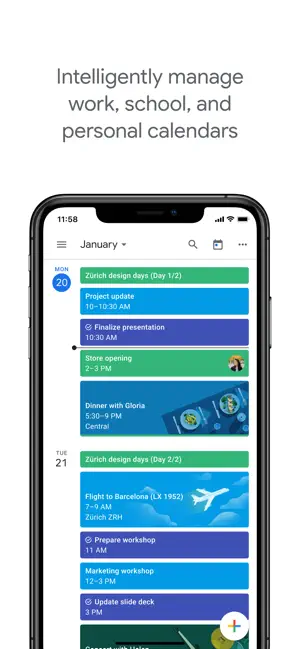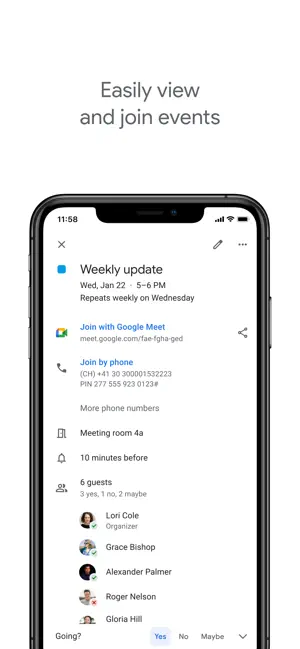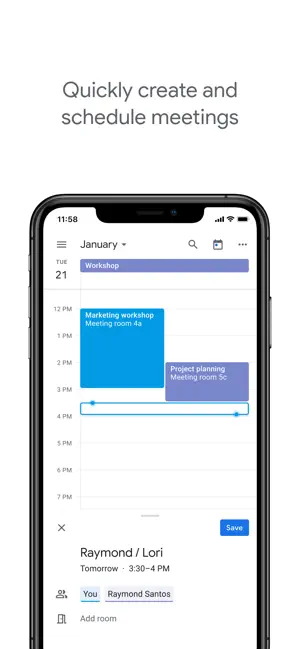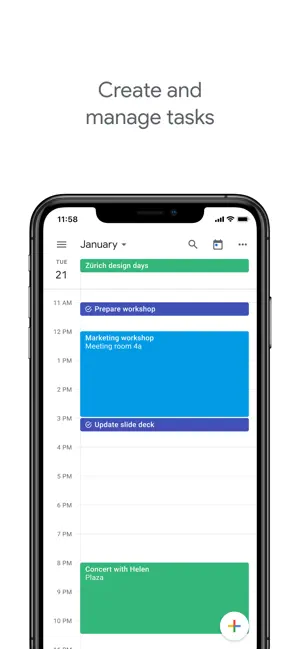
| App Name | Google Play Store |
|---|---|
| Latest Version | v42.2.27-23 [0] [PR] 660620715 |
| Last Updated | 10 August 2024 |
| Publisher | GooglePlayStore. |
| Requirements | Android 5.0 |
| Category | Productivity |
| Size | 50 MB |
How to Master Time Management with Google Calendar: A Complete Guide
In today’s fast-paced world, managing time efficiently is more important than ever. With countless responsibilities and appointments demanding our attention, staying organized can be a challenge. Google Calendar, a leading digital scheduling tool, offers a solid solution to this problem, transforming the way we plan our days, weeks, and months. This article explores the features, benefits, and strategies for using Google Calendar to its fullest potential.

Introduction to Google Calendar
Introduced by Google in 2006, Google Calendar is a cloud-based calendar application that integrates seamlessly with other Google services. Its easy-to-use interface and comprehensive feature set make it a popular choice for personal and professional scheduling. Whether you’re managing a busy work schedule, organizing family events, or coordinating group activities, Google Calendar offers tools and functionality to streamline your planning process.

The rise of digital calendars has made everything much easier. You no longer need to carry a planner around at all times. As long as you have your smartphone with you, you have access to your calendar. The calendar will send notifications so you can be sure you never forget anything or miss an appointment. And you can even share your calendar with others so you can see what a colleague has scheduled and find free time to meet up. It’s a whole new way of organizing time, and it’s been a noticeable change. It’s also been a sudden and unnatural change.
Changes to Google Calendar
In October 2017, that lack of clarity became apparent. Google updated its calendar for the first time since 2011. It launched a cleaner, tidier tool that removes some unnecessary features (and some that people enjoyed).
The result is an immensely powerful time management tool that we don’t really know how to use. We’re content with adding an event and are surprised, sometimes unpleasantly, when our Google calendar automatically adds an event taken from a private email. But we only use a fraction of its features and ignore many of the ways our calendar can improve our lives.

The Ultimate Guide to Google Calendar
In this Google Calendar guide, we’ll walk you through all of Google Calendar’s amazing features.
We’ll start with the simple stuff.
Then, our Google Calendar guide will walk through its advanced settings and discuss a couple of ways to extend the powers of Google’s free time management platform.
Google Calendar is more than just an agenda
There was a time when organizing a schedule meant pulling out an agenda and flipping through the pages. It meant looking past the scribbles and illegible handwriting to find a free space. It meant seeing the appointments you missed because… well, you forgot to look at your agenda in time. And it meant finding a time that also fit the schedule of everyone else attending the event. It was always a pain. However, this guide to using Google Calendar in 2023 and beyond will show you how to get the most out of this digital calendar.
Key Features of Google Calendar
- Event Creation and Customization: Google Calendar allows users to create events with ease. You can add details such as event titles, locations, and descriptions. For recurring events, you can set them to repeat daily, weekly, monthly, or at custom intervals, which is ideal for regular meetings or appointments. Additionally, users can attach files and links to events, making it easier to keep all relevant information in one place.
- Seamless Integration with Gmail: One of Google Calendar’s standout features is its integration with Gmail. This integration not only saves time but also ensures you don’t miss important events that are mentioned in your emails.
- Shared Calendars and Collaboration: Collaboration is simplified with Google Calendar’s shared calendar feature. You can create calendars for specific projects, teams, or family members and share them with others. This feature is particularly useful for coordinating group activities, tracking shared deadlines, and ensuring everyone involved is on the same page.
- Multiple Calendars Management: Users can manage multiple calendars within a single Google Calendar account. This allows for separation of personal, work, and academic schedules, all while viewing them simultaneously. By color-coding different calendars, you can quickly distinguish between various types of events and activities.
- Customizable Notifications and Reminders: Google Calendar offers customizable notifications to help you stay on top of your schedule. You can set reminders via email or pop-up notifications, with the flexibility to choose how far in advance you want to be alerted. This ensures you are well-prepared for upcoming events and deadlines.
- Integration with Third-Party Apps: Beyond Google’s own services, Google Calendar integrates with numerous third-party applications, including task managers, productivity tools, and fitness trackers. This connectivity helps streamline your workflow by syncing your calendar with other essential tools you use daily.
- Mobile Access: The Google Calendar mobile app provides access to your schedule from anywhere. The app mirrors the functionality of the desktop version, allowing you to manage and update your calendar on the go. This is especially useful for those who travel frequently or need to make adjustments while away from their desk.

Benefits of Using Google Calendar
- Enhanced Organization: Google Calendar helps keep your schedule organized by centralizing all your events and appointments in one place. Its visual layout and color-coding options make it easy to view and manage your day at a glance, facilitating better planning and time management.
- Increased Productivity: The integration with other Google services and third-party apps enhances productivity. By consolidating your schedule, tasks, and communications, Google Calendar reduces the need for multiple tools and helps you stay focused on your priorities.
- Improved Collaboration: Shared calendars foster collaboration, whether for work projects or family events. By allowing multiple users to access and contribute to a calendar, Google Calendar ensures that everyone involved is informed and can coordinate effectively.
- Accessibility and Convenience: Being cloud-based, Google Calendar offers unparalleled accessibility. You can access your calendar from any device with an internet connection, ensuring that you can manage your schedule wherever you are. This convenience is essential for maintaining organization in a busy lifestyle.
- Customizability and Flexibility: The platform’s customizable features, such as multiple calendars and personalized notifications, make it adaptable to various needs. Whether you’re managing a complex work schedule or coordinating family activities, Google Calendar’s flexibility allows you to tailor it to your specific requirements.
Best Practices for Maximizing Google Calendar
- Utilize Color Coding: Color-coding events by category or priority helps you quickly differentiate between various types of activities. For example, you might use one color for work-related events, another for personal appointments, and a third for family activities. This visual organization can improve your ability to manage and prioritize tasks.
- Set Up Recurring Events: For regular tasks or appointments, set up recurring events to automate scheduling. This feature reduces the need for manual entry and helps ensure that you don’t forget ongoing commitments. Customize the recurrence pattern to match your specific needs, whether it’s daily, weekly, or monthly.
- Explore Keyboard Shortcuts: Google Calendar supports a variety of keyboard shortcuts that can streamline navigation and event management. Learning these shortcuts can increase your efficiency and make it easier to navigate through your calendar quickly.
- Sync with Other Tools: Take advantage of Google Calendar’s integration with other apps and services. Sync your calendar with task management tools, project management platforms, or fitness trackers to keep all your information in one place. This holistic approach can enhance your productivity and streamline your workflow.
- Regularly Review and Update: Make it a habit to regularly review and update your calendar. Check for upcoming events, adjust schedules as needed, and ensure that your calendar reflects your current commitments. Regular updates help you stay organized and prevent last-minute surprises.
- Leverage the Search Function: Google Calendar’s search feature allows you to quickly find specific events or appointments. This is useful for retrieving information about past meetings or upcoming deadlines without having to scroll through your entire calendar.
- Experiment with Different Views: Google Calendar offers various viewing options, such as day, week, and month views. Experiment with these views to find the one that best suits your planning style. Switching between views can help you gain different perspectives on your schedule and better manage your time.
About Google Calendar
Google Calendar helps you stay focused on your goals.
Google Calendar is an essential productivity tool that helps people stay organized and on top of their schedules.
Key features of Google Calendar:
Switch between different views of your calendar: With the tap of a button, you can quickly switch between month, week, and day view to get a quick overview of what’s coming up.
Automatically add events from Gmail to your calendar: If you book a flight, hotel, or restaurant, this information will be added to your calendar automatically.
Create, manage, and view tasks and events – This means you can keep track of your appointments and to-do list in one convenient place.
Share your calendars with others online – Google Calendar allows users to publish their calendars to the web, making it easy to share your schedule with others. Whether you want to share your availability with clients or just your friends and family, publishing your calendar can make scheduling easier and more efficient.
Part of Google Workspace – For businesses and teams, Google Calendar is an integral part of Google Workspace. With Google Workspace, you and your team can quickly schedule meetings by checking coworkers’ availability or overlaying your calendars into a single view. You can also see which meeting rooms or shared resources are free, share calendars so people can see all the event details, and access your calendar from your laptop, tablet or phone. This means everyone can stay informed and know what’s happening, no matter where they are.
The Power of Google Calendar: How to Master Time Management in the Digital Age
In the fast-paced world we live in, staying organized can be a daunting task. This is where Google Calendar comes in, a digital tool that has revolutionized time management for millions of users around the world. Thanks to its robust features and seamless integration, Google Calendar has become more than just a scheduling tool – it is a comprehensive platform that helps users streamline their daily lives and improve productivity. This article will discuss the features, benefits, and best practices for using Google Calendar effectively.
Brief Overview
Launched in 2006, Google Calendar is a cloud-based calendar service that allows users to create and manage events and calendars. It integrates with other Google services such as Gmail and Google Meet, enhancing its utility and convenience. Its easy-to-use interface and powerful features make it a staple for individuals and businesses alike.
Conclusion
Google Calendar is a powerful tool that can significantly improve your time management and organizational skills. By leveraging its features and adopting best practices, you can streamline your scheduling process, increase productivity, and improve collaboration. Harness the power of Google Calendar and transform the way you manage your schedule, making the most of every moment.